On December 9, 2023, the 8th China Television Research Annual Conference was held at the School of Media and International Culture, Zhejiang University. The conference is co-hosted by the Institute of Radio, Film and Television of Zhejiang University, the Center for Comparative Humanities Studies of Cornell and East China Normal University, the Institute of Digital Ethics of Communication University of China, and the Center for Media Convergence and International spread Studies of Shenzhen University. This year's conference aims to understand post-TV and explore media reinvention in the age of platforms. The conference invited well-known domestic and foreign scholars and audio-visual industry experts to make keynote speeches, and also attracted researchers and industry professionals from all over the world to actively participate.
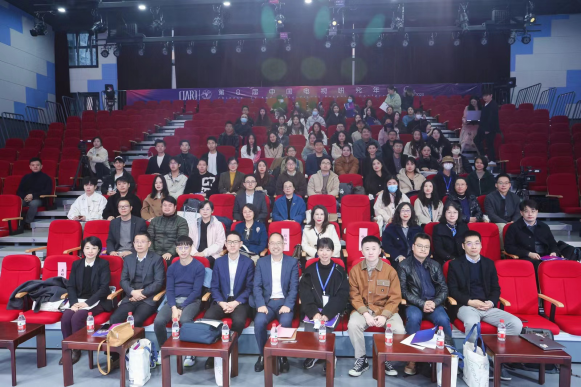
The meeting was presided over by Wang Qingwen, Secretary of the Party Committee of the School of Media and International Culture, Zhejiang University, and Wei Lu, Dean of the School of Media and International Culture, Zhejiang University, delivered an opening speech.
Wei Lu first introduced the development history and achievements of Zhejiang University and the School of Media and International Culture of Zhejiang University, and emphasized the role of the China Television Research Annual Conference in communicating and connecting the academic community and the industry. On behalf of the organizers, Wei Lu expressed his heartfelt gratitude to the guests and looked forward to the academia and industry to seek the future development path of the TV industry as the wave of digitalization swept the TV and industrial clusters.
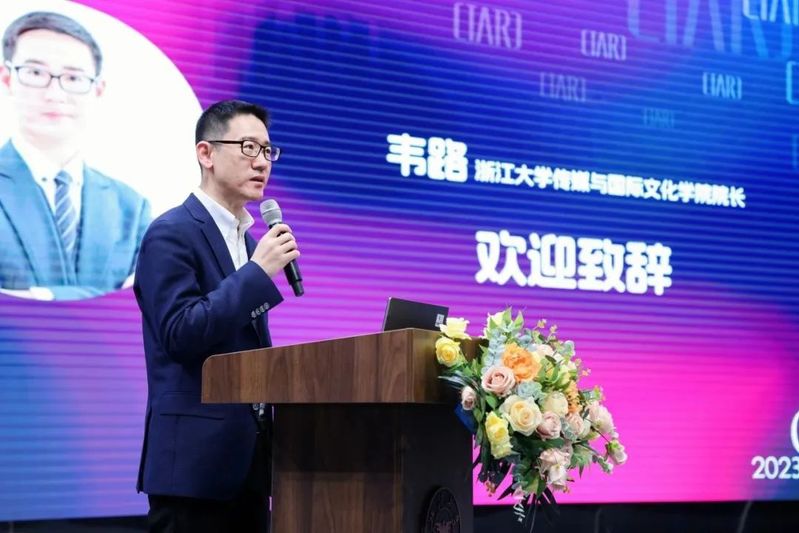
As one of the first scholars to engage in post-TV research in China, Professor Feng Yingqian of the University of Chinese Hong Kong believes that it is necessary to look at post-TV from a newer perspective and strive to make a theoretical model that adapts to the development of the times and the industry. He theoretically traced the origins of post-television research from five aspects: cross-media storytelling, audience interaction, digital distribution, new media technology and convergence culture, and proposed a new direction for post-television research.
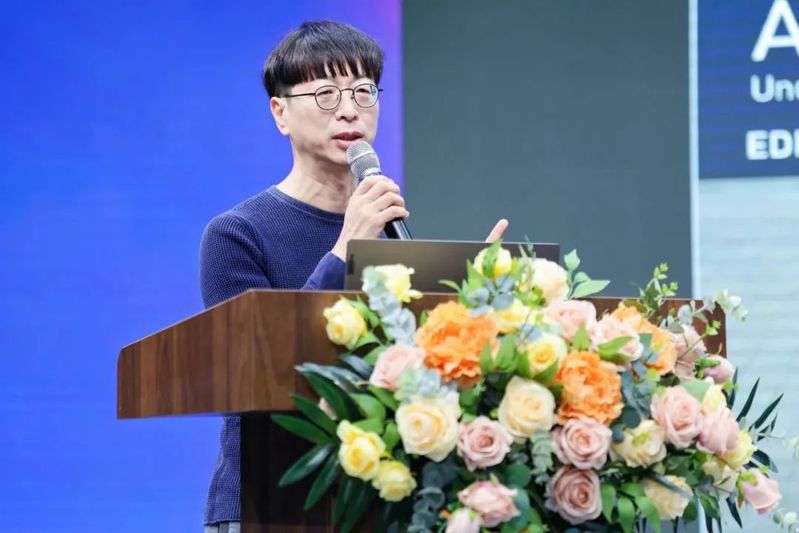
Zheng Xiaoyi, vice president and head of public relations of iQIYI, made a speech on the theme of Film and Television Content Innovation under the Integration of Technology and Art. She introduced the latest progress and development trends of film and television content creation and audiovisual platform planning, focusing on the current situation of technology-enabled film and television production in the context of generative artificial intelligence. Taking iQIYI as an example, she pointed out that the integration and application of AI technology not only improves the audience's audio-visual experience, but also brings new business models and opportunities to the entire entertainment industry.
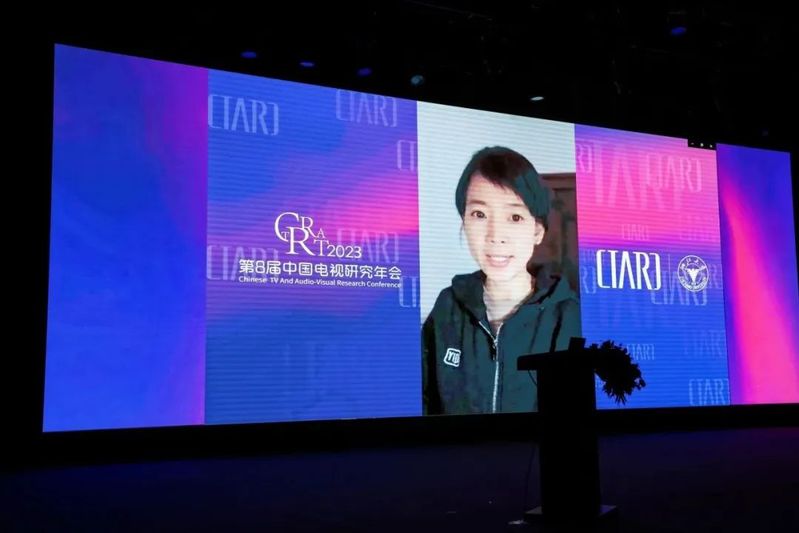
Shi Jingyue, Co-President of Vobile Group (China) and Deputy Director of the Global Digital Culture Industry Research Center, delivered a keynote speech entitled Building a Global Influence Incremental Market through Content Output, she believes that in the context of the great prosperity of film and television production and transmission, it is more necessary to use the power of technology to build a content value chain and solve the problem of value distribution, which is the key to realizing the global circulation of digital content assets. Among them, copyright is an important resource element for the development of the cultural industry, and it is also the basis for the transaction of digital content assets.
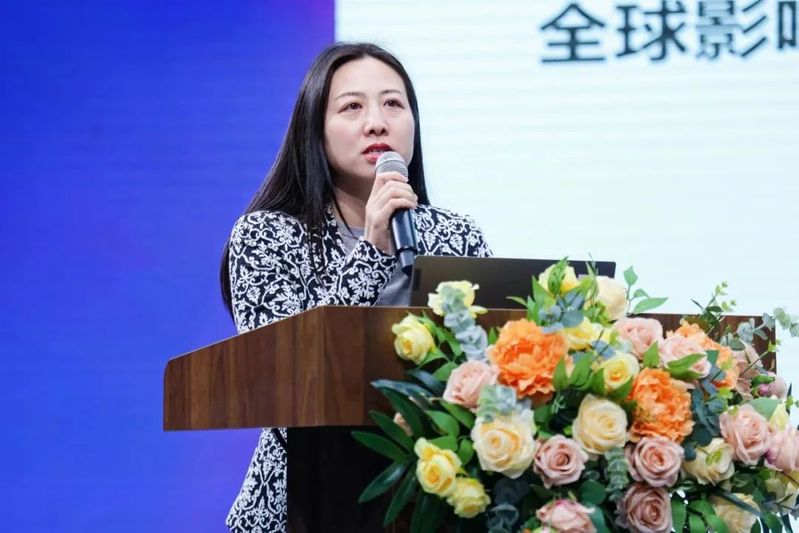
Fan Zhizhong, Executive Dean of the International Film and Television Development Research Institute of Zhejiang University, focused on the future development of film and television in the era of digital intelligence. He pointed out that with the advancement of digital technology, film and television creation is undergoing major changes and redefining the boundaries of film and television, but digital technology has not really subverted the core essence of film and television aesthetics, but with the help of the progress of digital technology, the aesthetic concept has broken through the shackles of traditional film film and created unlimited creative possibilities.
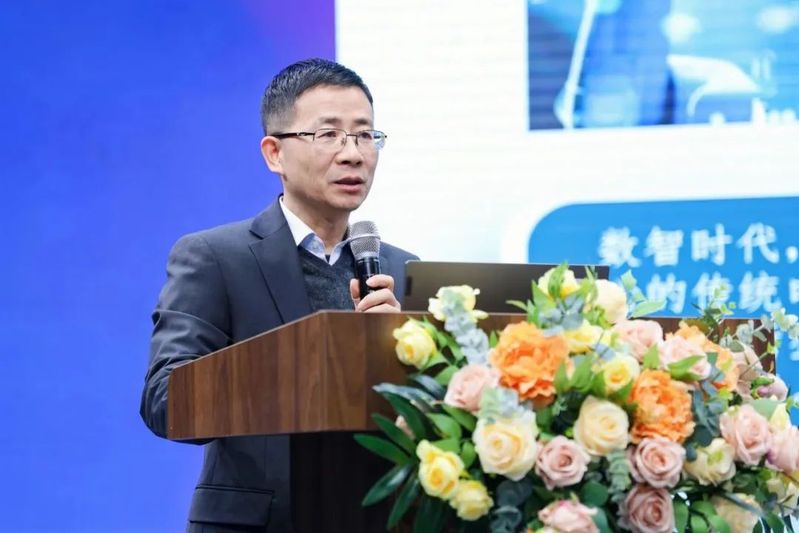
After the keynote speeches, Professor Chang Jiang from Shenzhen University, Professor Ji Deqiang from Communication University of China, Associate Professor Wu Changchang from East China Normal University, and Professor Zhao Yu from Zhejiang University held a roundtable discussion on Eight Years of Retrospective: The Development Trend of Television Research. On behalf of the organizers, several teachers shared the original intention of jointly establishing the China Television Research Annual Conference and the paradigm transformation of Chinese television research in the past eight years. Professor Chang Jiang introduced the changes that are taking place in the technological environment of television production, transmission and reception, and proposed the issues worthy of attention in the process of transforming the paradigm of television research to digital audiovisual research. Professor Ji Deqiang pointed out that the development history of television is linear, but television research can be nonlinear, and in addition to industrialization, television research also involves the issue of media system and collective memory. Professor Wu Changchang discussed the demand for real-time experience on video platforms and the impact of new online broadcast platforms on traditional TV broadcasting models, and also called for the reform of radio and television professional education to cultivate talents who can adapt to the development of the industry. Professor Zhao Yu pointed out that the future of television research focuses on solving the problem of the fit between the actor model and the scholar model.
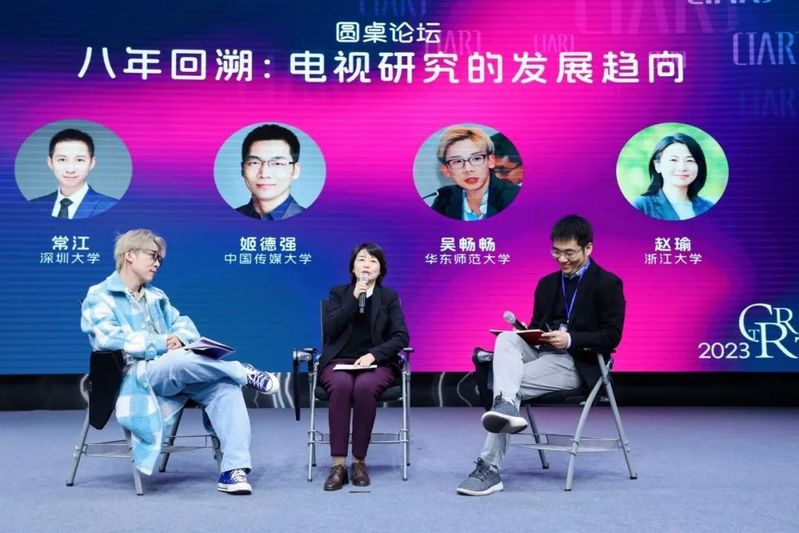
In the afternoon of the same day, the annual conference set up five sub-forums, with the themes of Deep Media Integration and the Platformization of Television, Cultural Production in the Post-TV Era, Social Orientation and Methods of Television Research, Reflection and Reconstruction of Television History, and Television Media in the Digital Cultural Industry.
After the sub-forum, Professor Zhao Yu presided over the industry forum of Thinking on Radio and Television Business in Ten Years of Integration, and invited six experts from the audio-visual industry to have a dialogue. Shen Jian, editor-in-chief of Zhejiang Satellite TV, shared the strategic priorities of the major cultural platform of Z Vision and the results achieved since its launch eight months ago, and analyzed the changes in the production process of radio and television programs in the context of media integration. He pointed out that more important than content innovation is the ecosystem of the platform, the ability to continuously output content, the ability to manage talents, and the system design that always maintains passion. Chen Wenhao, director of the editor-in-chief office of Hunan Satellite TV, introduced the three advantages of talent, ecology and industrial empowerment after the integration of Hunan Satellite TV and Mango TV platforms, and the three torches formed by it are the key to driving away the cold of the format. Feng Zheng, deputy director of Henan Satellite TV's Performing Arts Division and chief director of Lantern Festival Wonderful Tour and Dance Millennium, believes that although TV and new media seem to have different tracks and different forms, the boundaries are blurred, and the core of competition is still focused on the creation of content products, and TV organizations need to give full play to their own strengths. Cui Yu, deputy director of Hunan Radio and Television Entertainment Channel and co-founder and editor-in-chief of Mango MCN, believes that short video platforms are changing people's consumption patterns, short videos are better at stimulating emotional value, and long video content is more inclined to scene-based consumption, and more attention is paid to storyline and depth. Wang Yan, Vice President and Producer of Hangzhou Drama Center of Huace Film and Television Group, shared the experience of Huace Film and Television in continuously creating excellent works, pointing out that based on the production cycle of TV dramas, content planning needs to be more market-oriented and sensitive. Xu Fan, chief content officer of Beijing Guanzheng Culture, pointed out that going overseas to meet the competition is an important way for media people to strive for greater development of the industry in the future, and he took global variety show IP as a typical case, and believed that Chinese production companies should benchmark against their global counterparts, actively integrate into the production sequence of global communication platforms, and make every effort to explore the global dissemination of original content. Industry guests also responded to the hot issues of the industry that the academic community is concerned about, including the relationship between short videos and long videos, and the international dissemination of Chinese programs.
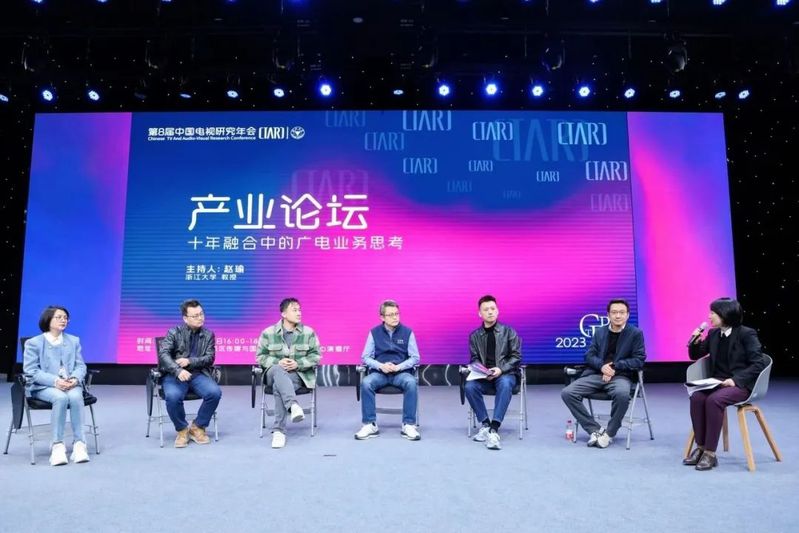
In the end, this year's TV Research Annual Conference ended successfully with the DVD launch ceremony and screening seminar of the documentaries Bobby's Factory and China-Africa Love in the 90s. This year's annual conference continues the purpose of full communication between academia and the industry, and the high-quality speeches and dialogues of the guests have yielded fruitful results, which are of great significance and enlightenment for revealing the renewal of the production chain in the post-TV era and seeking the high-quality development of audio-visual content.

